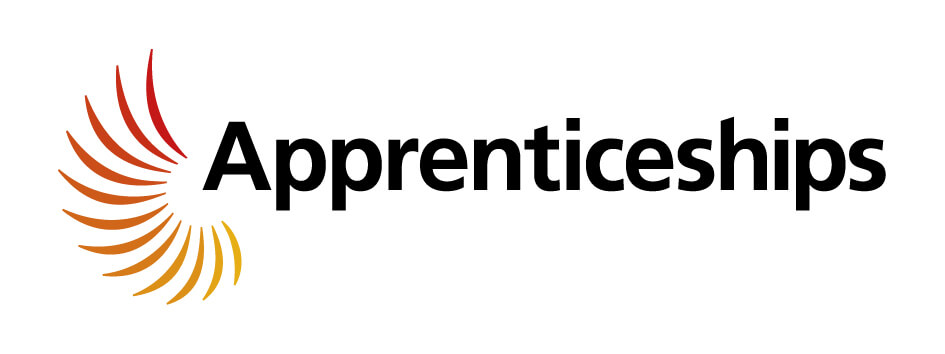

Apprenticeships for Businesses - What are they and what's in it for me?
Overview
There were over 161,000 apprenticeships for businesses started in England during 2020/2021.
They are a proven programme that provides people with work relevant skills and qualifications to help you grow your business.
- Apprenticeships for businesses provide skilled workers for the future
- Apprenticeships for businesses increase staff loyalty and retention
- Apprenticeships for businesses increase a company’s bottom line
National Apprenticeship Service data has shown that 81% of consumers favour using a company that takes on apprentices. You can even calculate the return on investment of an apprenticeship on your business on the organisation’s website.
Furthermore, as companies receive funding for each apprentice they take on, it means they don’t have to spend as much to recruit new staff.
Source CMS Vocational Training
What’s in it for me?
- 86% of employers said apprenticeships for businesses helped them develop skills relevant to their organisation
- 78% of employers said apprenticeships for businesses helped them improve productivity
- 74% of employers said apprenticeships for businesses helped them improve the quality of their product or service
Source National Apprenticeship Service.
You can also claim the incentive by hiring an apprentice who has been made redundant.
Apprenticeship Incentive Scheme Payment for Employers
As an employer hiring an apprentice, it will be your responsibility to apply for the Government Apprenticeship incentive payments. This is done using your apprenticeship service account, which you need to have set up before you can make a claim. Any requests after the 15 May 2022 deadline will not be paid.
Payments will be made in 2 equal installments for each apprentice.
To be eligible, the apprentice must complete:
- 90 days of their apprenticeship for the first payment
- 365 days of their apprenticeship for the second payment
Payments will be made on the 14th working day of the month, and it can take up to 3 days for the payments to reach bank accounts.
What can the payments be used for?
Unlike the apprenticeship levy funds, this payment can be utilised on anything that supports your organisational costs. For example, uniforms, apprentice’s travel or salary.
The payment is in addition to the existing £1,000 an employer will already get for taking on an apprentice who is either:
- aged 16 to 18 years old
- under 25 and has an education, health and care plan or has been in the care of their local authority
This £1000 payment will be paid to your training provider, and you will receive it from them.
How to share your interest:
- search for apprenticeship training using ‘Find apprenticeship training’
- enter a town, city or postcode and select ‘View providers for this course’
- on the results page, look for ‘Can’t find a training provider?’ and select ‘Share your interest’
Road to a quality apprenticeship – a practical guide
The recently published road to a quality apprenticeship provides information to help you achieve a quality experience for your apprentices while maximising the benefits for your business. Take a look to understand more about your role in the apprenticeship journey.
What’s my commitment?
To employ an apprentice, you need to check and meet the following terms and conditions.
When offering an apprenticeship for businesses you need to ensure or provide:
- They are 16 years old or older by the end of the the first week of September
- A safe working environment
- They are not in full-time education
- Work in a role that is relevant to their apprenticeship
- Work enough paid hours each week to undertake sufficient training to achieve their apprenticeship
- Minimum 30 hours required each week, which includes off the job training
- In conjunction with the training provider, provide individual(s) from your business to provide coaching, mentoring and support
Apprentices can be new employees or current employees already working for you.
We base the minimum duration of each apprenticeship on an apprentice working 30 paid hours a week or more. This includes any ‘off-the-job’ training they do.
Designing the programme
Apprenticeships for businesses combine learning in the workplace with formal off the job training. It enables them to gain the knowledge, skills and behaviours they need to be effective in their current role.
Before proceeding there are two questions that you need to think about.
They are:
- Have you identified suitable individual(s) for the apprenticeship(s)?
- Do you have a job description for the apprenticeship?
If not, then you will need to create one.
Let’s assume that you answered Yes, to both of the above. Then the process would start where we would contact approved local apprenticeship providers and set up a virtual meeting at a time that suits you.
Off-the-job training means training done by the apprentice that is separate to their normal role.
This can be done at a college or training organisation, on your premises or online, or using a combination of these options.
For some apprenticeships for businesses, your apprentice may need to study for a work-based qualification from GCSE (or equivalent) up to degree level.
At least 20% of an apprentice’s normal working hours must be used for off-the-job training. This ensures your apprentice will have the knowledge, skills and behaviours they need for their chosen occupation.
Your apprentice may also need to study for Maths and English qualifications as part of their apprenticeship. You must allow your apprentice time to study and take part in apprenticeship training within their normal working hours.
You can agree how all of this training will be provided when you choose a training provider. Read our employer guides to support off-the-job training for examples of how this works in practice.
You must:
- pay your apprentice at least the National Minimum Wage for apprentices
- give your apprentice a job role (or roles) that enables them to gain the knowledge, skills and behaviours they need to achieve their apprenticeship
- allow your apprentice to combine learning in the workplace with formal off-the-job training
- pay them for the time they are in work and in off-the-job training
- give your apprentice a contract of employment that is at least long enough to allow them to complete their apprenticeship successfully
Get started
We specialise in providing access to government programmes to help you grow your business and help the region bounce back.
Digital Future First is a part funded EU project; its partners (Suppylant, DBFB and The Learning & Skills Academy) have access to many projects across the SEMLEP region and are here to support you and your business.
Contact us to check your eligibility now.
Find out more about Government support
Although, we have access to a range of Government programs and incentives, you may want to look at the Government website.
See guidance and resources on good work experience including:
- work experience placements that work guide from CIPD
- employer case studies from Skills Training UK
- why they work videos from the Learning and Work Institute
- work experience quality standard accreditation from Fair Train
Get support to deliver work experience for people with learning difficulties or disabilities from:
Fact Checker
- 1What's the Scheme?
In 2018/2019 there were over 393,000 apprenticeships for businesses started in England with apprentices taking up intermediate and advanced apprenticeships for over 1,500 different job roles.
They are a proven programme that provides people with work relevant skills and qualifications to help you grow your business.
- 2What's in it for me as a Business Owner?
- Straightforward recruitment process with no fees
- 86% of employers said apprenticeships helped them develop skills relevant to their organisation
- 78% of employers said apprenticeships helped them improve productivity
- 74% of employers said apprenticeships helped them improve the quality of their product or service
Source National Apprenticeship Service
- 3How do I apply?
Step 1: Firstly, we recommend that you register with us because when you do we'll ensure you are kept in the loop with all the latest Government incentives as they are announced.
Step 2: Once you have registered your business with us you can book your free needs assessment with an Advisor by selecting one of the three durations below, then choose your preferred day and time and we'll do the rest.
- 4What's my commitment?
To employ an apprentice, you need to check and meet the following terms and conditions.
When offering an apprenticeship you need to ensure or provide:
- They are 16 years old or older by the end of the the first week of September
- A safe working environment
- They are not in full-time education
- Work in a role that is relevant to their apprenticeship
- Work enough paid hours each week to undertake sufficient training to achieve their apprenticeship
- Minimum 30 hours required each week, which includes off the job training
- In conjunction with the training provider supply individual(s) from your business to facilitate coaching, mentoring and support
Apprentices can be new employees or current employees already working for you.
- 5Find out more
Please Contact us to book an appointment with one of our advisors.
Book your meeting with me to find out more about Apprenticeships for Businesses
Additional information
 Apprenticeships
Apprenticeships
- Apprentice Academy nominated for AAT ‘Large Training Provider of The Year’ 9 February 2024
- Property Management Apprenticeship Success Stories 29 January 2024
- The Most Popular Apprenticeships in 2022/2023 13 December 2023
- Get Ready for AI Microsoft 365 Copilot 19 October 2023
- Ofsted Rate The Apprentice Academy ‘Good’ 29 September 2023
- The Importance of Onboarding Strategies for New Recruits and Apprentices 31 August 2023
- Apprenticeship Restrictions Lifted for Small Businesses 28 April 2023
- Is My Business Ready to Recruit an Apprentice? 28 March 2023
- The Impact Of Apprenticeships 9 February 2023
- 7 Great Reasons For Employers To Think Apprenticeships 13 May 2022








